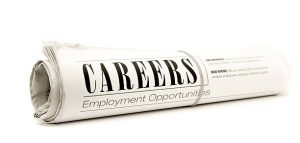Hiring for Good Cultural Fit
Like people, organisations have personality. Corporate culture defines the collective values, beliefs, attitudes and behaviours shared by a group of people who work together. Common cultural values include teamwork, integrity, and respect for the individual. Various companies share some cultural values but what does differ between organisations is how much certain values are emphasised and…
Like people, organisations have personality. Corporate culture defines the collective values, beliefs, attitudes and behaviours shared by a group of people who work together. Common cultural values include teamwork, integrity, and respect for the individual. Various companies share some cultural values but what does differ between organisations is how much certain values are emphasised and rewarded within the organisation.
A simple example of a poor cultural fit would be for an introverted person who prefers peace and quiet in which to work, to join an organisation which encourages open plan offices and high interaction with other staff. Time spent on internal communications represents another example of cultural difference between organisations. Some people are good at keeping everybody in the loop and others are independent workers, focussed on tasks and typically preferring to communicate only at milestones or on completion of a job. A further example is where an organisation places significant emphasis on managers coaching and developing talent. A candidate with a strong skill set who lacks the motivation or ability to develop others may not be a good cultural fit for such an organisation.
Good cultural fit is associated with many positive outcomes. In 2005 Kristof-Brown statistically analysed a large number of studies on cultural fit. From their study they concluded that employees who fit well with their organisation, co-workers and supervisor:-
- Had greater job satisfaction
- Identified more with their company
- Were more likely to remain with their organisation
- Were more committed and
- Showed superior job performance.
- Like people, organisations have personality.
Psychologists have estimated that the correlation between good cultural fit and these positive outcomes is around 40%, which means that cultural fit accounts for about half of the variation between employees in determining job satisfaction.
Successful companies understand the values that are core to their culture and they consistently hire people who practice those values and project that image. The challenge for employers is to possess an insight into their own cultures and to be able to articulate it to prospective employers and assess their fit. Behavioural interviews can be useful in screening for cultural fit. For example, “Describe the work environment where you believe you were most productive?” “Give me some examples of how you resolved conflict at work?”
The first round of candidate selection should clearly be on the basis of who best fulfils the background and experience required to do the job. In the second round of screening cultural fit is an important consideration. If candidates are judged equal on ability then final selection should be based on identifying the best person who fits the culture.
Candidates should also be mindful of their own preferences in culture when making a decision to join a company. Research prior to an interview can be invaluable. In addition, questions on culture at the interview will enable you to find out the type of attitudes, values and shared expectations which exist in the company. For a prospective employee such factors can have a significant impact on job satisfaction and career success.
The Latest Updates
Let’s look at the current trends in job demand and talent availability in the agriculture and agribusiness sector in Australia over the second half of 2023 and the first quarter of 2024. There was a weakening of job demand in this sector but a slight improvement in candidate availability and job interest during this period….
In times past, people’s working lives often played out over many years at one company, but now the world has vastly changed. These days it is common to shift between jobs and organisations, but this practice raises questions as to what is today considered the Goldilocks time to spend in a job? How often do…
Employee retention matters. Organisational issues such as training time and investment, lost knowledge, mourning, insecure co-workers and a costly candidate search aside; failing to retain a key employee is costly. Various estimates suggest that losing a middle manager costs an organisation up to 100 percent of their salary. The loss of a senior executive is…











